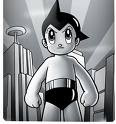Salahuddin Al-Ayubi And Richard 'The Lion Hearth'
Saladin was born in 1137 to an eminent Kurdish family. His father, Najm ad-Din, was the commander of the castle of Takreet on the Tigris River in Iraq. Even from a young age Saladin was known for his intelligence, manners, modesty, generosity and piety.
Richard Plantagenet, born in 1157, was the second son of King Henry II and Eleanor of Aquitaine. He was recklessly brave, loud, and ruthless. Reston openly discusses Richard’s anti-Semitism and homosexuality. In fact, on the day of Richard’s coronation, Jewish elders who brought gifts for the new monarch were barred from entering the palace, then stripped, whipped and thrown into the street. Later that night, a rowdy mob burned down the Jewish quarter of London. The next day, the King was without any sympathy for the Jewish victims but he did hang a few arsonists who had burned nearby Christian houses. Reston writes that soon Richard’s rank anti-Semitism grew into overt sadism. For Richard, “a good joke was to extract the teeth of Jews in a lingering process,” writes Reston.
When Saladin was declared King of Syria and Egypt at the age of thirty-eight in 1175, the whole Muslim world was living in the shadow of the humiliating defeat of the first Crusade. The reason for the Muslim defeat was internal sectarian warfare and petty squabbling. As a result of their follies, even the sacred city of Jerusalem was taken over by the invaders. When Christian forces captured the Holy City in 1099, the Crusaders “massacred every living creature that was not of their own kind.” Reston writes that ten thousand were killed at Masjid Al Aqsa alone. Some of the dead bodies were ripped opened because it was rumored that Muslims were swallowing gold in desperation. They even burned down a synagogue, with many Jews still inside. The Crusaders danced around the pyre singing the popular Christian hymn of the time, Te Deum.
Muslim hopes were, however, revived by the recapture of Edessa in Iraq and the unification of Muslim Syria and Mesopotamia and Egypt by Saladin’s predecessor Nur ad-Din. Jerusalem, however, remained elusive until Saladin emerged as Sultan, when he made it his primary goal to recapture the city from the Crusaders.
“When God gave me the land of Egypt, I was sure that he meant Palestine for me as well,” Saladin is reported to have said. Saladin wrested Jerusalem from Christian hands in 1187. In marked difference from the Crusaders, Saladin’s triumphant entry into the third holiest city of Islam was very peaceful. He explicitly forbade reprisals and insisted that the city revert to its former status - open to worshippers of all three faiths. Saladin calmed down the hot heads of his camp - who were demanding the destruction of the Church of the Holy Sepulcher. “The Church of the Holy Sepulcher was not to be touched,” he declared.
After his entry into Jerusalem, the church was closed for only three days, after which the Christians were permitted to enter for a small fee. He cleansed and restored the Dome of Rock and the Masjid al-Aqsa, which had been converted into a stable for the horses of the Templar order of Christian knights. He also released thousands of Christian prisoners.
Reston asserts that Saladin’s actions define what it meant to be a good Muslim. “By his amnesties and various charities toward his enemies he secured forever his reputation for gentility and wisdom,” writes Reston.
An era of peace followed the Muslim recapture of Jerusalem until Reginald of Chatillon, Lord of el Kerak (an impregnable fortress on the caravan route between Mecca and Egypt) broke a treaty that required both sides to allow the caravans to pass peacefully. Reginald seized one lavishly laden caravan and took Saladin’s sister hostage. Infuriated by this breach of treaty, Saladin attacked and defeated Reginald at the famous Battle of Hattin. Subsequently he uprooted Christian bases one by one.
Alarmed by their diminishing power in the Holy Land, Christendom united to wage a war against Saladin to “liberate” Jerusalem. This time their leader was Richard “The Lion-hearted”.
Subscribe to:
Post Comments (Atom)


No comments:
Post a Comment